|
This article is about the
early blues record shop specialists in the UK back in the 1960s. It came
about following a session reminiscing about record shops and the
scarcity of blues records back then. We hope you enjoy it.
___________________________________________________________________________________________________________________
A rough estimate of the
number of record shops which specialised in blues in England during the
1960s, as far as I can recall, numbered about 10! This among many
hundreds of record shops/stores in the UK. There were no other outlets
at that time. Virtually all the rest did not include a ‘Blues’ section
in their racks, although a very mixed ‘jazz section was included which
was heavily slanted towards ‘modern jazz’ in most of its various (often
disputed) forms.
About
half of these blues outlets were situated-not surprisingly-in London.
Including Dobell’s, 77 Records, in Charing Cross Road and Dave
Carey’s Swing Shop which was located a little further out in
Streatham, South London. It was the latter that along with my kid
brother Rex, we would make the ‘pilgrimage’, several times a year. It
seemed like a pilgrimage as living in the area including Weybridge,
Surrey, which was some 23 miles to the centre of London, the journey
required up to ride two trains and sometimes a bus.
On
finally arriving at the Swing Shop, we discovered the floor area was
little bigger than an average-sized living room! All the LPs were
stacked vertically and it was not possible to do much in the way of
browsing. However, if Dave was asked about one of the LPs he advertised
in the monthly Jazz Journal, he could generally lay his hands on
it within a few minutes. His ad-a full page on the inside back cover-
was how we got to know of any blues albums in stock. We could then hear
some of the selected LP on a small turntable situated near the door of
the shop (no individual booths, then) and so any other customers could
hear artists we chose, like Sam Collins, Walter Davis, Henry Thomas, et
al. A rare treat for ‘em as they were usually jazz fans! Dave Carey
himself was a vibes player in a small jazz outfit.
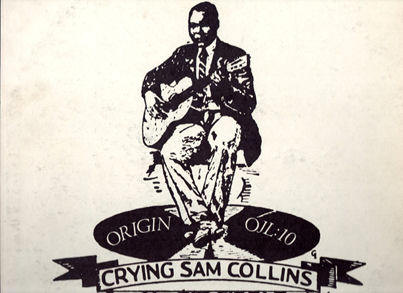
 |
After
’agonising’ at some length on which of the records we heard,
one (all we could afford!) was then selected. Generally,
Rex bought a different album so we had 2 to dig. But on one
occasion-at least- we both bought the same one. And one of
these was by Crying Sam Collins and his ‘Git Fiddle’,
on Origin OJL 10. Whatta find that was. Ethereal falsetto
vocals with a keening bottleneck guitar. This IS the Blues!
On another occasion, we listened to Volume 2 on the
rare London-based Down With The Game label. Including the
first Casey Bill Weldon tracks we heard and the almost
single-entendre (!) ‘Think You Need A Shot’ by Walter
Davis. In fine sound, too! |
|
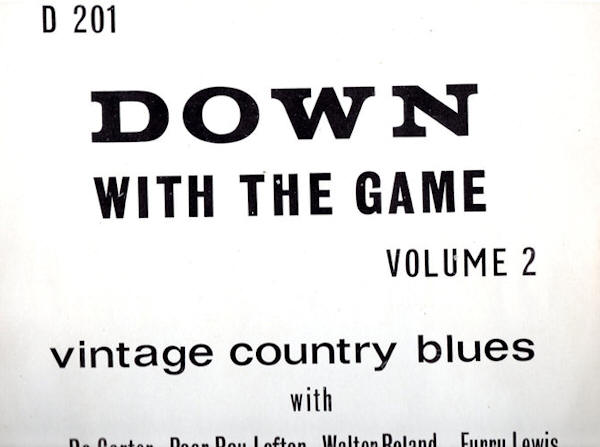
One of a series of
five volumes before disappearing. All these early reissues
of pre-war blues were ‘Limited Editions’. DWG ran to 100
copies and presumably if they sold out would sometimes press
another 100. While Origin often did 500 copies at a time.
But the impoverished blues fan never knew when supplies
might dry up! In passing, it should be noted these LP cover
shots represent a part-representation. |
This was
prior to the appearance of the Austrian-based Roots RL 300 series
running to 40 albums. Before morphing into Document LPs and eventually
CDs. The latter extending to some 600(!) discs covering the entire
contents of the ‘Blues Bible’: Blues & Gospel Records 1890-1943
by the 4th-and latest!- edition in 1997. Also in the mid-
960s, the US label Yazoo arrived, albeit as ‘Belzona Records’ for the
first few reissues. Like Document transferring to CDs later on. Some
of the latter are still available and anyone interested should check out
the great mail order co. Red Lick Records based in Cardiff, South
Wales. Ironically, by that time I was buying nearly all my blues/gospel
LPs by mail order. A growing international trend which ultimately
brought on the demise of the pioneering blues specialist record shops as
featured in this article.
Indeed,
it was courtesy of US Mail that I bought my first titles by the King of
the Delta Blues: Charlie Patton. These were The Immortal Charlie
Patton Nos. 1 & 2 on OJL 1 and OJL 7, respectively. This awesome
and unique blues singer has since long been my guiding spirit through my
time on the planet.
|
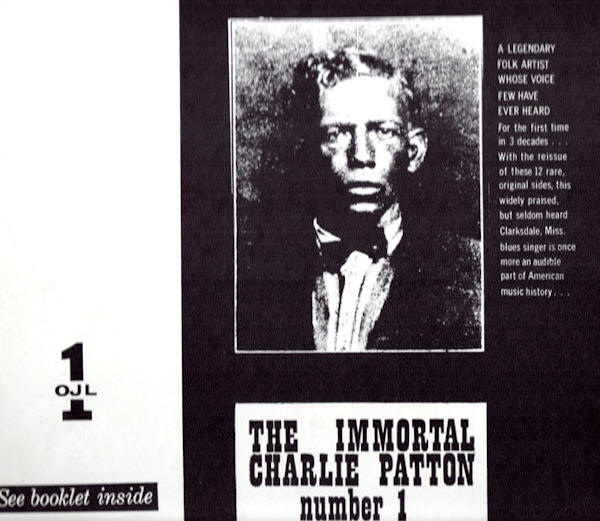
The text on the
front of this mind-boggling album ran: “A LEGENDARY FOLK
ARTIST [sic] WHOSE VOICE FEW HAVE EVER HEARD
For the first time
in 3 decades…With the reissue of these 12 rare, original
sides, this widely praised, but seldom heard Clarksdale.
Miss. [sic] blues singer is once more an audible part of
American music history…” Sadly, as with many of these
Origins, the legend “See booklet inside” was a myth! 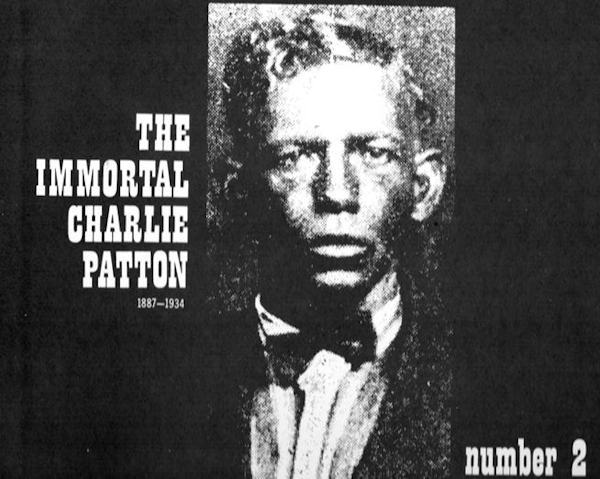
|
As well
as the handful of blues record shops (who of course also sold jazz) in
Greater London, there were also a similar small group out in the
‘provinces’. The most prominent of these, which I visited personally,
were The Diskery in the old Bull Ring in Birmingham and
Barry’s Record Rendezvous in Manchester.
The
former was run by a guy called Maurice who stocked a large 1950s rock ‘n
roll section (including doowop) as well as loads of great blues LPs.
The main counter was only a modest affair but it extended the width of
the shop for about another 20 feet. Down there was a smaller turntable
on which I was allowed to play LPs of my choice, which as at Dave
Carey’s I would wind up with a selection of two or three. I’d be there
the whole of the afternoon and now and again Maurice would bring me cups
of tea! Whereas I only called into Barry’s on a couple of occasions at
the most. As well as getting the Origin LP, the superb OJL11: The
Mississippi Blues NO.2: The Delta (featuring two more great Patton
sides), I picked up an EP on the Swedish label Pirate Records presented
by the Swedish Blues Society during the mid-1960s, featuring Barbecue
Bob. This was the first of three, numbered “sbs ep1”. Although I did
buy some albums by mail order, including sbs ep3 with Peg Leg Howell.
This small series was titled The Great Country Blues Singers.
No. 2 included 4 Blind Lemon Jefferson sides, but by then a larger
series of EPs was being issued on Jazz Collector called Male Blues
Singers, Vols. 1-8, which I thought (erroneously) duplicated sbs
ep2.
A
popular story that did the rounds in the late 1960s was if sales were
slowing down too much, a fire miraculously started from which presumably
the shop were paid out a sum from the insurance companies. This may be
apocryphal but there were certainly some fires at Barry’s Record
Rendezvous!
|
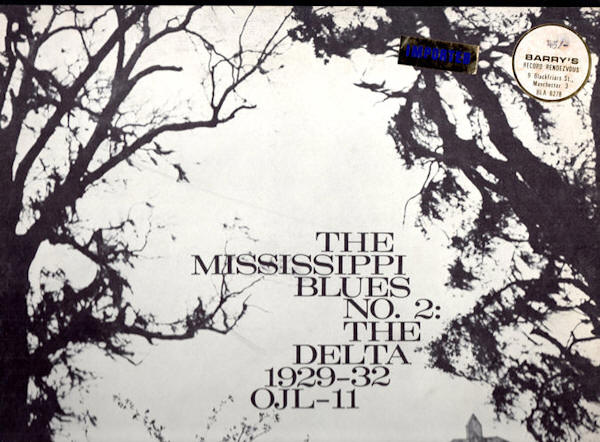
Barry’s price sticker reads
“45/-“ or £2. 05, in old money. Translated into £2.25 on
decimalization in 1971, it was a lot more when taking into
account inflation. The blue sticker to the left of the price
tag reads “IMPORTED”. |
On
reflection, I may have got the Peg Leg Howell EP from another shop along
with the aforementioned Male Blues Singers series. This was The
Good Noise situated down in Plymouth, in south-west England. I
did a whole lot of mail order business with them and looked forward to
the multi-coloured A4-esque loose leaf pages which dropped into my
letterbox every once in a while. But I never got to visit-Plymouth was
just a step too far! Ironically, I had already been to this city as I
was stationed at HMS Drake for most of 1957. But long before The
Good Noise appeared.
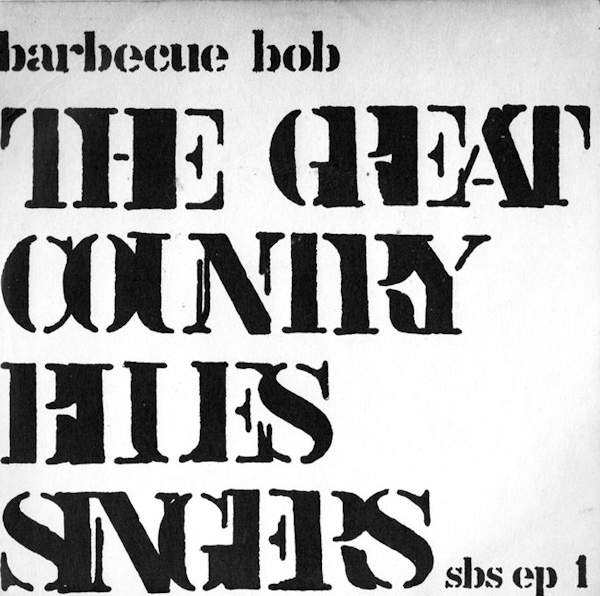
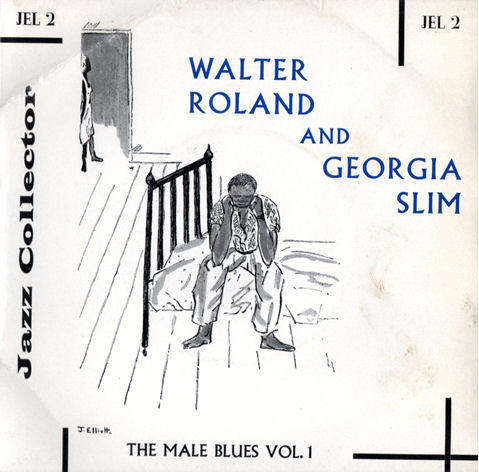
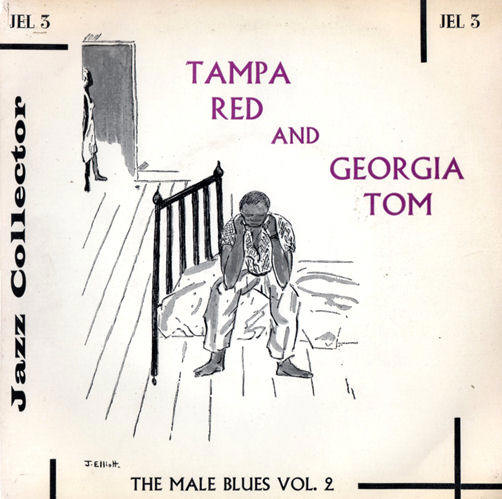
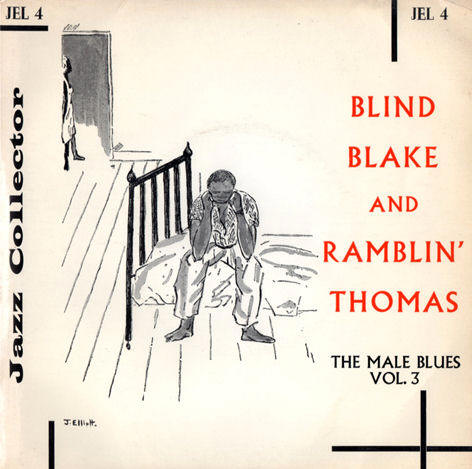
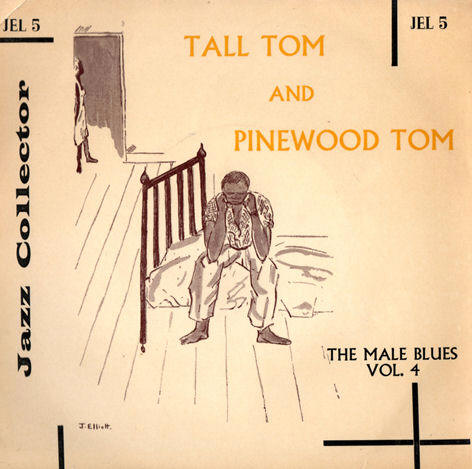
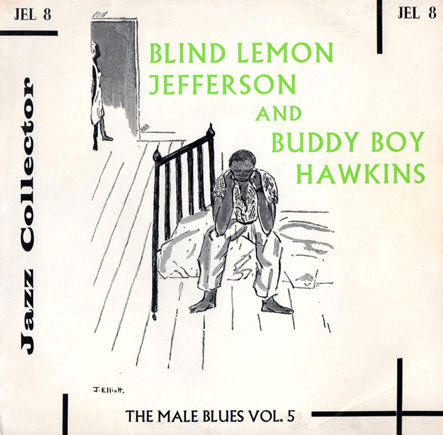
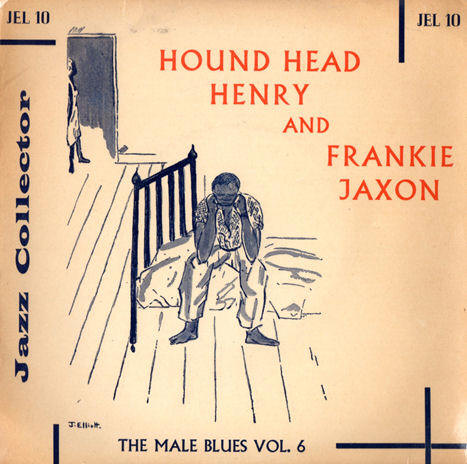
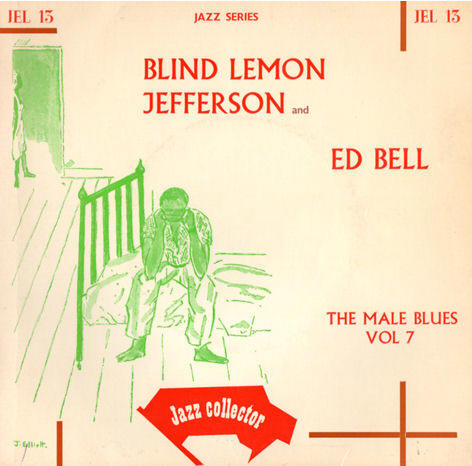
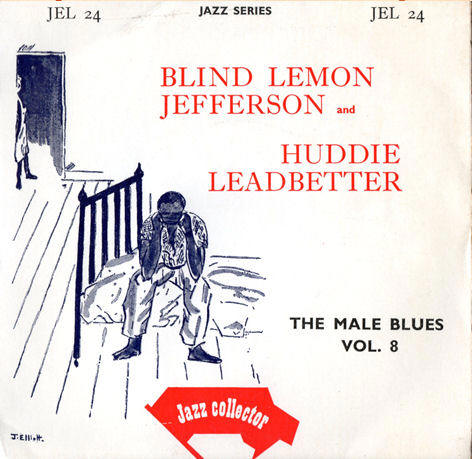
|
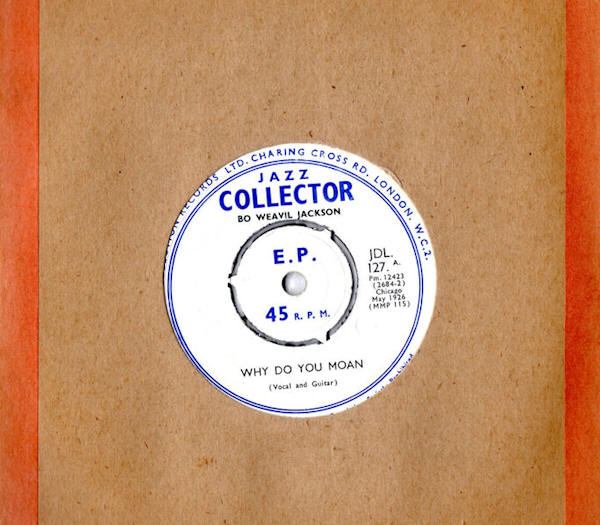
Although stamped with the
bold legend as an EP, this is a lil’ old British 45 single
issued in the 1960s, with ‘Some Scream Yellow’ on the
flipside. The great vaudeville blues singer Clara Smith
influenced both sides by Bo Weavil Jackson. |
I just
wonder how many other copies of this blues single there are still
around-up there no doubt in rarity terms with many of the 78s of the
pre-war blues heroes!!
Another
great blues record shop was Decoy Records in Salford, run by
Nick. As at The Diskery he would ply me with cups of tea for the
day. I remember that Decoy went on for a longer period than the
others already discussed. Indeed, maybe it appeared a little later, as
Nick had at least several floors of albums. One was all blues/gospel;
one was jazz/roots music and another, I think, featured more popular –
style music. Or maybe the roots stuff was up on the pop floor. Hey! This
is over 40 years ago! I well remember when CDs first came out in the UK
that Nick spent sometime trying to ‘convert’ me without success. My
answer in those days was if he could demonstrate to me that the Blind
Lemon Jefferson CD he had in stock was superior to my vinyl copy on the
old Roots label, I would start buying CDs. Of course the condition was
almost identical back then. Nothing like the digitalised reissues of BLJ
from Yazoo and Black Swan we have today.
Of
course, with the flood of Document CDs hitting the market-on CD only-I
soon adopted the new technology. Though I still feel, as do many
collectors, that vinyl has a much warmer ‘in-your-face sound.
Max
Haymes
May 2016
Essay © Copyright 2016 Max Haymes. All rights reserved.
___________________________________________________________________________________________________________________
If you have memories of
searching / buying blues records in record shops in the 1960s let me
know and I'll add them here ...
Just email your memories to
alan@earlyblues.com . Thank you.
___________________________________________________________________________________________________________________
|